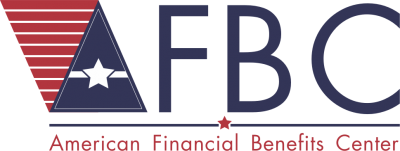AFBC Encourages College Students to Keep Track of Their Debt; Recommends Considering IDRs to Manage High Debt Payments

EMERYVILLE, Calif., April 18, 2018 (Newswire.com) - College students have the potential to rack up a lot of debt before graduation. Students may not even realize how much they are borrowing until they get the notice that repayment will begin after graduation. Because of the way student aid is disbursed, it can be easy to lose track of totals, especially if students do not check their balance totals periodically. American Financial Benefits Center (AFBC), a document preparation company that helps its clients with federal repayment plan applications, reminds borrowers that if they ended up with high debt, they may consider looking into and applying for federal income-driven repayment plans.
“In many cases, students must take out loans to fund a college education,” said Sara Molina, manager at AFBC. “But when they finish college and finally get a look at the balances, they might be shocked that it all added up to so much. Checking in throughout college may help them at least avoid surprises.”
But when they finish college and finally get a look at the balances, they might be shocked that it all added up to so much.
Sara Molina, Manager at AFBC
Several states have introduced legislation to promote transparency in the student loan process. Most recently, Pennsylvania’s House of Representatives passed a transparency bill that would require colleges to send notices to each student every year with loan balances and a percentage of the borrowing limits they have reached.
Critics of the bill denounce the focus on students, saying it places blame on them and their “bad choices” throughout college. Instead, solutions should be aimed at lowering the costs of college. However, students who know their current balances may be in a better position to plan their finances and make smart decisions when accepting future aid that they may not have known to make had they not seen their current debt.
Unfortunately, many students may need to borrow up to their limits regardless of whether they keep track of those balances throughout their college experience. When students leave with high federal student debt, they may consider looking into federal income-driven repayment plans (IDRs). Such plans cap payments based on income and family size and can potentially reduce borrowers’ monthly burden. And after 20 to 25 years of enrollment in the program, any remaining balance is forgiven.
“Having more information is never bad, especially if it can help students plan for their financial futures,” said Molina. “At AFBC, our clients are in IDRs to help them manage their student loans. We hope that they feel confident in their financial abilities to pursue their goals and not get bogged down by student debt.”
About American Financial Benefits Center
American Financial Benefits Center is a document preparation company that helps clients apply for federal student loan repayment plans that fit their personal financial and student loan situation. Through its strict customer service guidelines, the company strives for the highest levels of honesty and integrity.
Each AFBC telephone representative has received the Certified Student Loan Professional certification through the International Association of Professional Debt Arbitrators (IAPDA).
Contact
To learn more about American Financial Benefits Center, please contact:
American Financial Benefits Center
1900 Powell Street #600
Emeryville, CA 94608
1-800-488-1490
info@afbcenter.com
Source: American Financial Benefits Center
